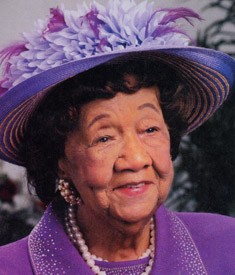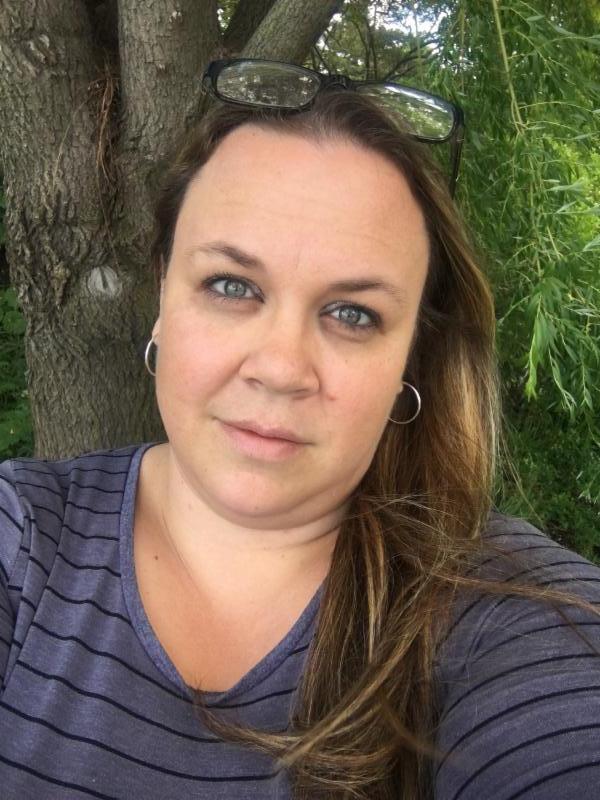|
|
|
|
|
|
| |
|
|
Eisenstadt v. Baird:
An Underreported Story
 Back in 1972, unmarried people in many states were able to obtain contraceptive supplies, but that right was not universal. Back in 1972, unmarried people in many states were able to obtain contraceptive supplies, but that right was not universal.
Hardly anyone in this country is unaware of Roe v. Wade, the 1973 landmark Supreme Court decision that granted women the right to abortion. Many people also know of Griswold v. Connecticut, the 1965 decision by the high court allowing married couples to secure contraceptives. But it's likely that far fewer people are aware of Eisenstadt v. Baird, the 1972 Supreme Court decision that granted single people that same right. March 22, 2017 will mark the 45th anniversary of that historic ruling.
It's hard to fathom that prior to that decision, one could be arrested in some states for distributing contraceptive supplies. William Baird was fully aware of this situation when he had engaged in civil disobedience in 1965 and 1966 in New York and New Jersey, respectively, by providing them to single people. He was arrested for doing so. Court cases that followed led those two states to change their laws. Massachusetts, however, was a state that still made it illegal at that time for a person to exhibit contraceptives and to distribute them to unmarried people. While giving a lecture in 1967 at Boston University, he displayed contraceptives, and later gave contraceptive foam to a young woman there. Those actions resulted in his arrest and conviction of violating Massachusetts law. The Massachusetts Judicial Court unanimously overturned Baird's conviction for displaying contraceptives, but retained his conviction for distributing the foam. He was then jailed for three months. The United States Court of Appeals for the First Circuit reversed that conviction, and Baird was then released. The state appealed to the United States Supreme Court, which heard oral arguments in November 1971. On March 22, 1972, the Supreme Court ruled 6 to 1 ( future justices William Powell and William Rehnquist were not yet seated on the Court) that single people had the same right to contraceptives as married people, who had gained the right five years earlier. The ruling was based on the Equal Protection Clause of the Fourteenth Amendment.
In an era in which reproductive rights and justice are under attack, it is important to remember how many of our rights were won through civil disobedience, followed by court challenges, and equally important to be cognizant that they can be taken away.
|
|
..............................................................................................................................................
|
Human Rights Activist Dorothy Height Honored
 Dorothy Height (March 24, 1912 to April 20, 2010) was honored by the U.S. Postal Service on its 40th Black Heritage series Forever stamp available in 2017.
Height was admitted to Barnard College in 1929, but denied entrance because the school had already admitted two black students. She earned her undergraduate and graduate degrees elsewhere, began work as a caseworker in New York, and at age 25 began her career as a civil rights activist. She joined the National Council of Negro Women where Mary McLeod Bethune, NCNW founder, became her mentor. Height fought for equal rights for both African Americans and women.
In 1944 she joined the national staff of the YWCA and worked from within to desegregate all levels of the organization. She became president of the National Council of Negro Women in 1957 and held this position until 1997.
Height helped organize the 1963 March on Washington and insisted that Dr. Martin Luther King's time not be shortened which allowed him to give his "I Have a Dream" speech.
Height was in demand as a speaker on a variety of human rights issues. At age 89 she captivated the audience at the National Family Planning and Reproductive Health Association luncheon. She started Black Family Reunion Celebrations on the National Mall in 1986 to show the strength of black families and was sought after as a speaker well into her 90s.
She pushed presidents from Dwight Eisenhower to Barack Obama on voting rights, health care for all, fair housing, better pay, criminal justice, and equality in the military. In 1994, President Bill Clinton presented her with the Medal of Freedom. President George W. Bush gave her the Congressional Gold Medal on behalf of the U.S. Congress in 2004. She was an honored guest at President Obama's inauguration in 2009.
|
International Women's Day 1910 - 2017
"The story of women's struggle for equality belongs to no single feminist nor to any one
organization but to the collective efforts of all who care about human rights..."
~Gloria Steinem
 International Women's Day (IWD) was proposed in 1910 at the second International Conference of Working Women in Copenhagen and unanimously accepted by the attendees--over 100 women from 17 countries who represented working women's clubs, unions and socialist parties. The first celebration of IWD took place in four European countries on March 19, 1911.Six days later, the Triangle Shirtwaist Factory Fire in New York City killed 123 women and 23 men. This tragedy underlined the danger that working women faced in the industrial marketplace, and future IWD's focused on working conditions and the need for legislation to protect workers. International Women's Day (IWD) was proposed in 1910 at the second International Conference of Working Women in Copenhagen and unanimously accepted by the attendees--over 100 women from 17 countries who represented working women's clubs, unions and socialist parties. The first celebration of IWD took place in four European countries on March 19, 1911.Six days later, the Triangle Shirtwaist Factory Fire in New York City killed 123 women and 23 men. This tragedy underlined the danger that working women faced in the industrial marketplace, and future IWD's focused on working conditions and the need for legislation to protect workers.
International Women's Day also becamea time to call for peace and for voting rights for women both before and after World War I. In 1913 the date of IWD was transferred to March 8.
The United Nations celebrated International Women's Day for the first time in 1975, and in 1977 the UN called upon member nations to annually reflect on women's progress, to call for change, and to celebrate women's courage, determination and achievements.
Today, IWD is recognized in countries around the world. It is a collective day of global celebration of women's achievements and a call for gender parity. It brings together governments,corporations, nonprofits, women's and other organizations. In gaining wider recognition IWD has moved away from its more radical roots. However, 2017 witnessed vigorous demonstrations all over the world. To see some of those, go to
http://time.com/4694755/international-womens-day-2017-world/
.
Several International Women's Day events were held in Chicago on March 8, including an IWD Rally in Solidarity with Women's Struggles All Over the World, which was hosted by the Chicago Teachers Union in partnership with many progressive organizations. Many IWD events in the U.S. this year were an outgrowth of the Women's Marches on January 21, 2017 to raise women's voices to the new administration that women's rights are human rights.
|
|
Voices from the Women's March
 As I joined the hundreds of thousands on January 21st for the Chicago Women's March I was reminded of how powerful our voices can be. Each step I took, I took with millions throughout the world as a symbol of unification in emphasizing that Woman's rights are Human rights. I walked as a woman, a daughter, and a mother. It was a powerful and inspiring moment in my life as I walked between my mother who has taught me to be the woman I am today, and my son whose innocent mind embraced each step as his own step towards equality. To voice, to demonstrate, to educate in unison is one of the most imperative rights we have as Americans. Being a part of this moment will forever have a place in my heart and in the history; it is a reminder that it is not just a choice but a duty of ours as members of this society to advocate for our rights.
~Nadia J. Jimenez
..............................................................................................................................................
Born in the 1950s, I grew up in a Republican house with parents who were horrified by the protests of the 60s and 70s. They talked about protesters in terms that spoke of disgust.
The Kent State tragedy was one I remember particularly well because the discussion was really vehement
, as my dad grew up in Ohio and was a student at Kent State. I could not understand how the deaths of protesters could be considered a good thing in any sense
. Neither could I understand how my parents, whom I loved and considered compassionate people, said, in essence, "They got what they deserved."
At college, where I was unbound by the militarism and conservative patriotism of my home, I questioned the legitimacy of the Vietnam War, but only to myself
. I was not yet confident enough to bring my questions home, but very sure of the reaction I would provoke there.
After college my life became centered around first career and then children. Two of my children have special needs and I found myself in a real struggle for their educational rights and, for one of my children, significant health issues. I struggled against the attitudes of powerful constituencies in education and health care that held that my children were insignificant and would never amount to anything. And I found my true voice. I found myself more and more allied with the vulnerable, the powerless. Still, I had little energy to support causes I believed in because I was so exhausted by my own struggle.
In 2015
, I began to be very concerned about what I considered the real threat of a Trump candidacy. In 2016 I began working locally on the Clinton campaign. I was stunned by the election results. I know I was not alone in my reactions of disbelief and disgust, and my real fear of what this presidency would bring. But I felt alone. Would I join the March?
I found that I still needed, at age 63, to overcome the mistrust and repulsion for protesting that my parents had instilled in me
, even though I had voted for and supported causes opposed to their thinking for more than 40 years. And that reaction surprised me. It was exquisitely painful to realize that I thought I had come so far, but to find that I still had so much more work to do. I did march. I marched not in protest, but in support of civil and human rights. And I did it because I realized that the word "protesting" is a word promulgated by people like my parents. A much more appropriate term in my mind, to my way of thinking is "upholding".
~Dianne Sperling
|

|
|
|
|
| |
|